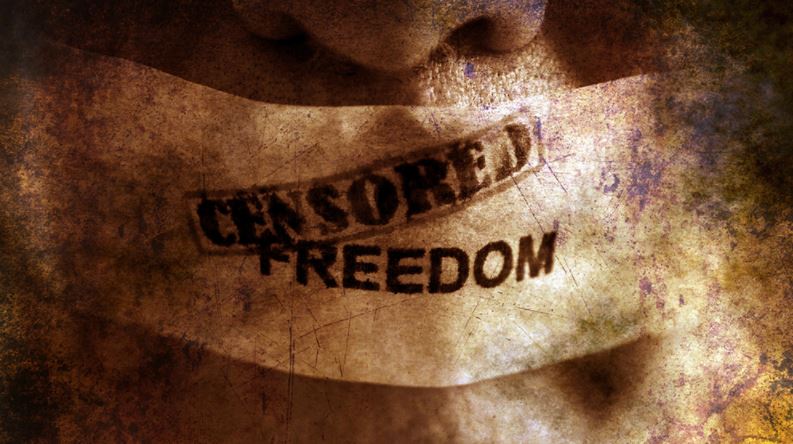This article comes from “naturalnews.com”
- Censorship Policies & Free Speech Erosion: The Trump administration has implemented aggressive censorship measures, mirroring tactics criticized on the left, raising fears of weakened constitutional protections and setting a harmful precedent for future governance.
- Funds Redirected to Combat Anti-Semitism: Secretary Marco Rubio dissolved USA ID, reallocating $95 million to Jewish organizations fighting anti-Semitism, while critics question political biases and the prioritization of this over other forms of discrimination.
- Threats to Universities & Deportation Plans: Trump threatens universities with funding cuts unless they ban pro-Palestine activism, while proposing deportations—even for U.S. citizens like Elon Musk—sparking accusations of First Amendment violations and authoritarianism.
- ICE Expansion & Human Rights Risks: The “Big, Beautiful Bill” boosts ICE funding, igniting concerns it may target political dissidents, alongside controversial facilities like “Alligator Alcatraz,” which evoke ethical and human rights abuses.
- Political Consequences & Tribalism: Democrats may exploit Trump’s censorship to rebrand as free speech defenders, while tribal loyalty blinds some conservatives to hypocrisy, jeopardizing democratic principles ahead of critical elections.
The Trump administration has introduced a series of aggressive censorship policies that mirror the tactics of the radical left, sparking widespread concern among free speech advocates. Critics argue that these measures could erode constitutional protections and set a dangerous precedent for future administrations.
Reallocation of Funds and Suppression of Speech
Secretary Marco Rubio has shut down USA ID, absorbing its functions into the State Department, and reallocated nearly $95 million to Jewish organizations to combat anti-Semitism. This move comes at a time when Israel is facing criticism for its actions targeting civilian women and children. Rubio’s decision to rebrand the slush fund money, previously used to fight transphobia and Islamophobia, to fight anti-Semitism highlights the administration’s priority shift, but it also raises questions about the political biases driving these policies.
Threats to Universities and Deportation of Critics
The administration’s aggressive stance against free speech has not been limited to financial reallocation. President Trump has threatened universities with funding cuts if they do not ban student groups from boycotting Israel. This selective censorship has drawn criticism from free speech advocates who argue that it violates the First Amendment’s protection of offensive speech, as long as it does not incite violence.
Moreover, the administration has proposed the deportation of Americans, including public figures like Elon Musk, for speech deemed critical of Israel. This move has further exacerbated fears of an authoritarian slide, as it targets not just illegal immigrants but U.S. citizens for their political views.
The “Big, Beautiful Bill” and ICE Expansion
The recently passed “Big, Beautiful Bill” has significantly increased funding for Immigration and Customs Enforcement (ICE), expanding its role and power. Critics warn that while the bill’s stated intention is to secure the border and deport illegal immigrants, the broader implications are alarming. There is a growing concern that ICE could be repurposed to target political dissidents and critics of the administration.
Human Rights Concerns
The creation of facilities like “Alligator Alcatraz” in Florida, a detention center surrounded by alligators, has raised further alarms about potential human rights abuses. These facilities are designed to deter escape, but they also evoke images of concentration camps, raising questions about the ethical implications of such measures.
A Shift in Political Landscape
The Trump administration’s aggressive censorship policies are likely to play into the hands of the Democrats, who can reposition themselves as the party of free speech. While the Democrats themselves have a history of authoritarian tendencies, they are poised to capitalize on the current climate to win back power. The trend suggests that the Democrats could sweep the midterms and the 2028 presidential election by promising an end to Trump’s authoritarianism.
Tribalism vs. Principles
The current political landscape is characterized by tribalism rather than principles. Many individuals and groups are aligning with the Trump administration out of loyalty rather than a commitment to free speech and constitutional rights. This tribalism has led to a situation where the very people who once fought against censorship are now supporting it, undermining the foundational principles of American democracy.
Conclusion
The Trump administration’s aggressive censorship measures and the expansion of ICE’s powers are raising significant concerns about the erosion of free speech and constitutional protections. While the immediate target may be critics of Israel, the broader implications are far-reaching and could set a dangerous precedent for future administrations. As the political landscape shifts, it is crucial to remain vigilant and uphold the principles of free speech and the rule of law.
